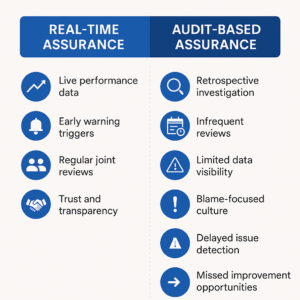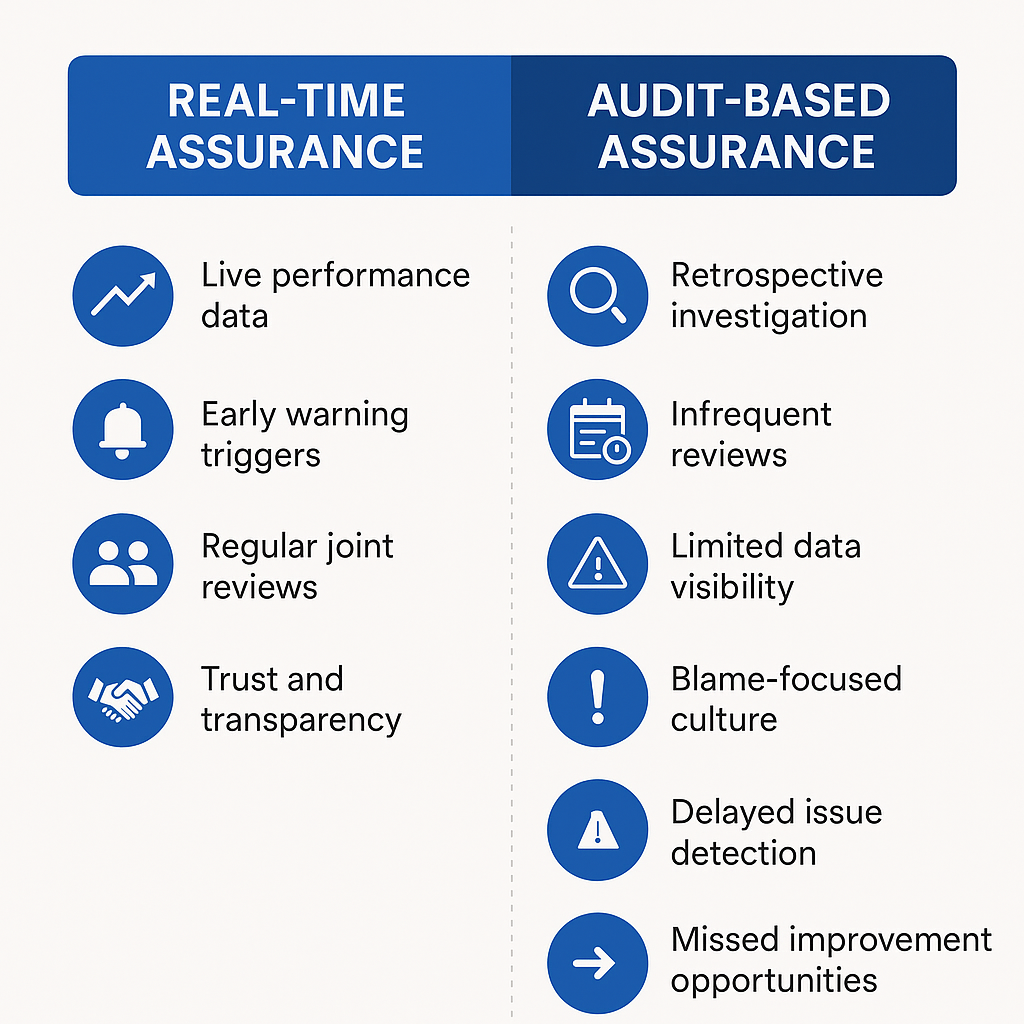 In the world of procurement and commercial management, contract audits often carry an air of inevitability. They are seen as a necessary step—an opportunity to catch out non-compliance, claw back value, or enforce accountability after the fact. But this reactive approach points to a deeper problem: if you find yourself needing a contract audit, something has likely gone wrong much earlier in the process.
In the world of procurement and commercial management, contract audits often carry an air of inevitability. They are seen as a necessary step—an opportunity to catch out non-compliance, claw back value, or enforce accountability after the fact. But this reactive approach points to a deeper problem: if you find yourself needing a contract audit, something has likely gone wrong much earlier in the process.
Audits as a Symptom, Not a Cure
A contract audit is, by its nature, retrospective. It seeks to uncover discrepancies, inefficiencies or failures in delivery that have already occurred. While audits can be useful in certain contexts—particularly in complex or high-risk agreements—they are often deployed as a substitute for ongoing oversight and relational trust.
The need for an audit is frequently the symptom of weak contract design, poor mobilisation, and insufficient real-time governance. It may indicate that performance data has not been flowing transparently between parties, that KPIs and service levels are either poorly defined or unenforced, or that commercial and operational teams have been working in silos.
If the contract is functioning as it should, the question becomes: why audit at all?
Building Confidence Through Real-Time Governance
The best contracts are those that enable real-time performance visibility and shared accountability. Rather than relying on an audit months—or even years—down the line, effective contract management embeds mechanisms for live tracking, joint reviews, exception reporting, and continuous improvement from day one.
This involves more than setting up dashboards or conducting monthly meetings. It means:
-
Agreeing mutually defined success criteria that are meaningful, measurable, and aligned to business outcomes.
-
Enabling transparent data sharing between client and supplier, with both parties accessing the same version of the truth.
-
Implementing early warning systems that flag risks or variances before they turn into failures.
-
Embedding a relational contracting mindset, where trust, collaboration, and joint problem-solving are the norm—not the exception.
In such a model, audit becomes redundant—not because oversight is absent, but because assurance is baked into the contract from the outset.
Relational Contracting: A Preventative Model
Relational contracting offers a compelling alternative to traditional adversarial models. It’s grounded in the idea that both parties are stronger when they collaborate openly and align on shared goals. Rather than focusing on compliance and penalty, it encourages proactive behaviours: sharing risks, jointly managing issues, and seeking out innovation.
Critically, relational contracts are not “soft” on performance or accountability. On the contrary, they demand greater discipline—because success depends on active engagement, not just legal obligation.
When structured correctly, these relationships reduce the need for audit interventions. Why? Because problems are surfaced early, addressed jointly, and tracked transparently.
Final Thought
A contract audit may be a useful tool—but it should not be your safety net. If your contracts require regular auditing to deliver assurance, it’s worth stepping back and asking whether the contract is truly doing its job.
The goal of good procurement is not to audit after the fact, but to build confidence from the start. Through strong contract design, real-time monitoring, and genuine relational collaboration, we can move from a culture of audit and enforcement to one of continuous performance and trust.
In the end, the best contract audits are the ones you never need to do. We realise that if you follow our advice it is doing ourselves out of assignments but if you need us please contact us via our contact page.
#Procurement #ContractManagement #CommercialExcellence #RelationalContracting #PublicSectorProcurement #Retrofit #SupplyChain #Assurance #PerformanceManagement



